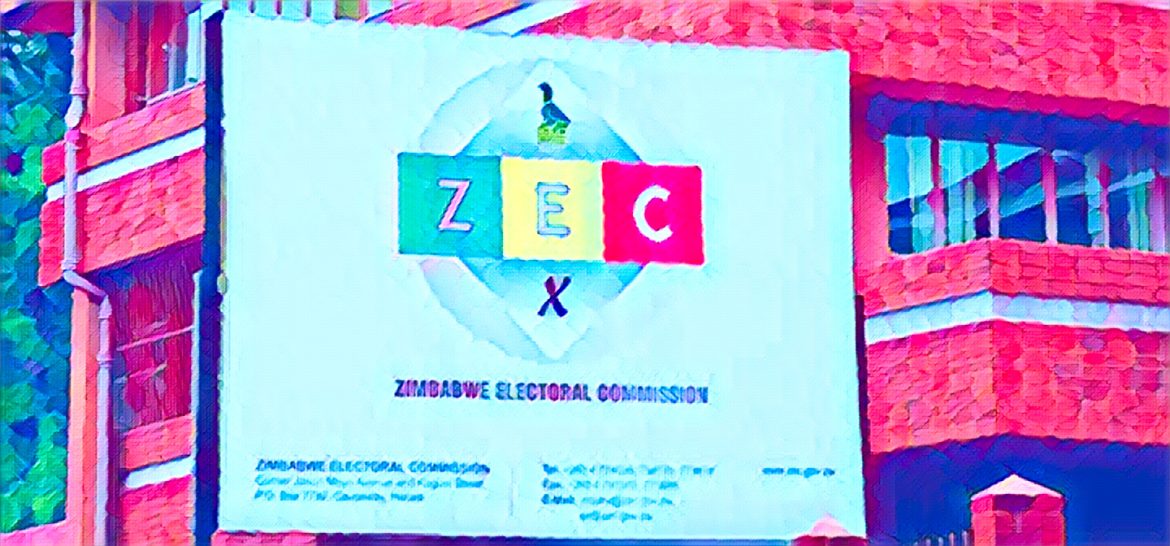The Zimbabwe Electoral Commission (ZEC) is under fire for conducting a covert voter registration campaign in rural areas where the ruling Zanu PF party traditionally holds a strong voter base. Reports have surfaced that ZEC has been quietly registering voters without the usual public announcements, a move that has drawn sharp criticism from political observers and civil society groups.
Witnesses from several rural communities have reported the presence of ZEC officials registering voters, but the lack of prior notice or public awareness has raised questions about the transparency and fairness of the process. In areas like Gokwe, villagers have noted that ZEC’s activities were communicated only through word of mouth, with no posters, advertisements, or notifications made available to the public. One villager from Gokwe described how the registration process unfolded in their area, highlighting the secrecy surrounding it. “ZEC visited our community to register voters, but without any public announcement. We only heard through word of mouth that ZEC was in the area. There were no posters or notifications, just officials arriving and setting up for the day.”
The covert nature of the voter registration has raised alarms among critics who view this as a strategic move to consolidate the ruling party’s dominance in these regions ahead of upcoming elections. ZEC’s actions have been described as an attempt to bolster voter numbers in rural areas, where access to information is often limited, thereby potentially skewing the voter base in favor of Zanu PF.
An official from Gumunyu High School in Gokwe North, who requested anonymity, confirmed that the voter registration exercise targeted learners who would be first-time voters in the next elections. “It is an exercise happening in all the schools in rural areas. We were tasked to inform the learners about the process. They are targeting first-time voters born on or before September 2006,” the official said. This deliberate targeting of rural areas has been criticized as a tactic to influence the electorate, especially among young, first-time voters.
In response to these concerns, ZEC Deputy Chairperson Rodney Simukai Kiwa dismissed allegations of secrecy, stating that the voter registration process is part of the commission’s continuous registration efforts. “There is nothing nicodemous about it; we are not hiding anything. We have continuous voter registration; it’s not periodic. Those electoral watchdogs should come to us, and we will educate them on issues around the electoral processes,” Kiwa said. However, his remarks have done little to quell the growing concerns among political observers and opposition parties.
The Zimbabwe Election Advocacy Trust (ZEAT) has been at the forefront of condemning ZEC’s secretive voter registration efforts. Ignatious Sadziwa, the executive director of ZEAT, expressed his organization’s dismay at the lack of transparency in the registration process. “ZEC has been discreetly registering voters in several rural communities, where Zanu PF garnered the majority of its support during the 2023 general elections. In those elections, the ruling party won a significant proportion of votes from these areas, while the opposition’s support was predominantly in urban centers,” Sadziwa said.
Sadziwa further criticized ZEC for undermining the electoral process by not making the voter registration exercise public. “This nicodemus and nocturnal conduct by ZEC is yet another low from a commission whose integrity is already in question, especially after presiding over a sham general election in 2023. This clandestine operation undermines the transparency and integrity of the electoral process, eroding trust in ZEC and the entire democratic system,” he said.
The allegations against ZEC have also sparked calls for immediate action to halt the secret voter registration blitz and ensure that future registration activities are conducted with full transparency. Sadziwa called on all stakeholders, including political parties, civil society, and citizens, to unite in demanding accountability from ZEC. “We call upon all stakeholders to join us in condemning this unacceptable behavior and demanding accountability from ZEC,” Sadziwa urged.
Legal and advocacy officer Takunda Tsunga from the Election Resource Center (ERC) echoed these sentiments, emphasizing the need for ZEC to uphold its constitutional obligations by conducting its duties transparently. “While ZEC is mandated to carry out continuous voter registration, there is a constitutional obligation on ZEC to carry out its function in a transparent way. To ensure the inclusion of all, ZEC must publicly disclose all registration activities and work with civil society organizations and political parties to alleviate any concerns around the integrity of their conduct,” Tsunga said.


